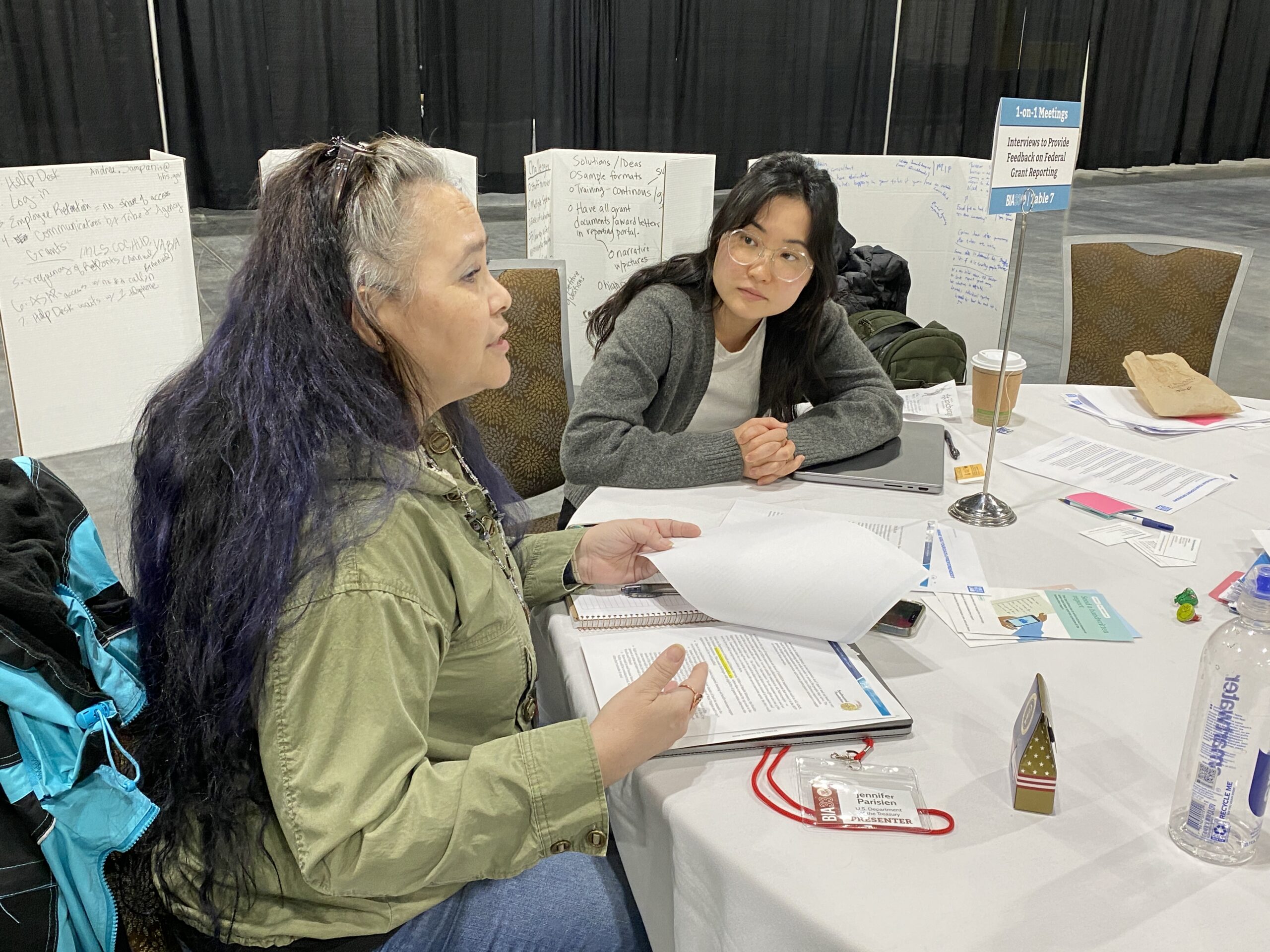

Fifty federal agencies award $1 trillion annually to grant recipients across the U.S., including many Tribal communities. While they provide valuable resources to Tribes, these grants also come with many challenges, including overly burdensome reporting requirements. In addition, many Tribes face unique obstacles—such as limited internet access and lack of trained administrative staff—that make the current reporting process particularly onerous and inequitable.
To address these challenges, the Tribal Grant Customer Experience Pilot for Post-Award Reporting, a project led by the U.S. Department of Health and Human Services Office of Grants (OG), Grants Quality Service Management Office (Grants QSMO) and a working group of key federal agencies involved in Tribal grant administration, aimed to reduce the burden of post-award reporting on Tribes across the country.
As President Biden affirmed during the 2023 White House Tribal Nations Summit: “Today, there are too many hoops to jump through, too many strings attached, and too many inefficiencies in the [grant-making] process.” During the summit, the President signed an executive order to reform how the federal government funds and supports Tribes, with a focus on reducing bureaucratic barriers. In alignment with these policy reforms, our project documented the challenges faced by Tribes on-the-ground and proposed tools and recommendations for a more equitable reporting experience.
Participants
Data points
Our research focused specifically on the experiences of Alaska Native Villages, as the challenges of access are particularly acute in Alaska. To gather firsthand experiences, we attended the 2023 Bureau of Indian Affairs Tribal Providers Conference in Anchorage and talked to Tribal administrators, community-based organization staff, and Tribal consultants.
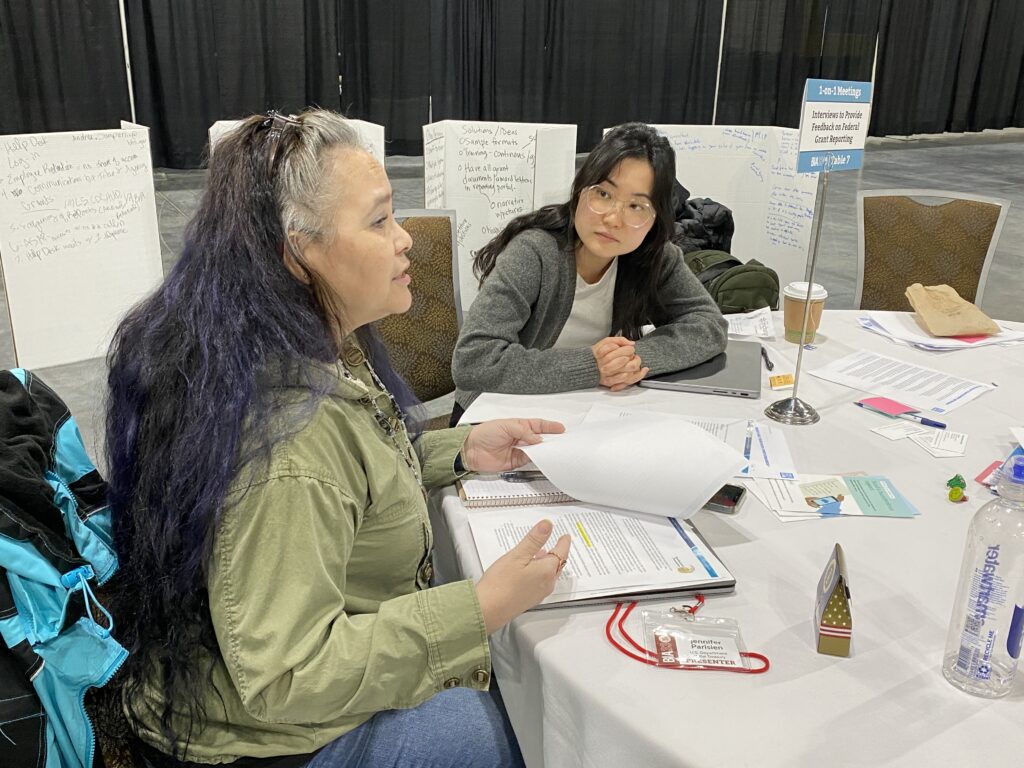
At the conference, we conducted semi-structured interviews with 16 participants and a group workshop with 80 participants.

In our research, we heard how Tribes must engage in a reporting process that is onerous and bewildering even for those with ample knowledge, time, and resources to devote to it. We also heard how Tribes must navigate over a dozen online systems to prepare grant reports with hundreds of questions—all with limited administrative staff, constant turnover, and unreliable internet access.
We heard about the day-to-day challenges of life, especially in remote Alaskan villages, where most goods must be imported and the costs of living are steep. In these contexts, federal grants can provide life-saving support for Tribes and their citizens. At the same time, we heard how the administrative costs of these grants can be so high that some Tribes might choose to forgo such critical funding. One Tribe told us about how they decided to close out an Emergency Rental Assistance grant, which would provide their citizens much-needed help with rent and utilities in the midst of the pandemic. As the Tribal administrator said, “We had to give that money back because we didn’t have the manpower to administer it.”
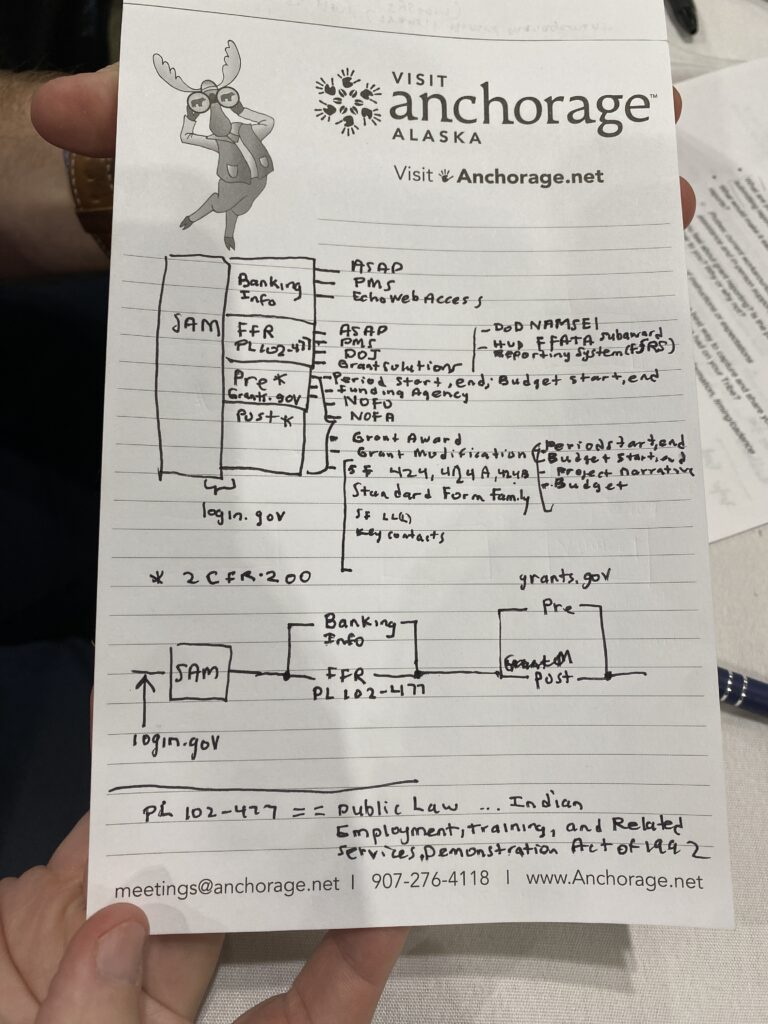
A Tribal administrator sketches out the various portals and systems they need to use for grant reporting.
The same Tribe received millions in federal funding during the pandemic, but struggled to submit their grant reports on time because of unstable internet and cell service in their village. The Tribe was in danger of needing to return the funds until they were able to work with a community-based organization and get approval to submit a paper-based report instead of using the online portal. They spent weeks compiling all of the receipts and required documentation. In another instance, the Tribe spent thousands of dollars chartering a plane and booking hotels to attend a grant training in Anchorage, only to arrive and realize that the meeting had been canceled via an email they had missed because their Internet was down.
These vignettes illustrate just a few of the challenges Tribes face when it comes to the grant reporting experience. Many similar stories were echoed by Tribes across the country. The burden of reporting is especially heavy for Tribes with the most limited resources, who must fulfill the same grant requirements without extra support.
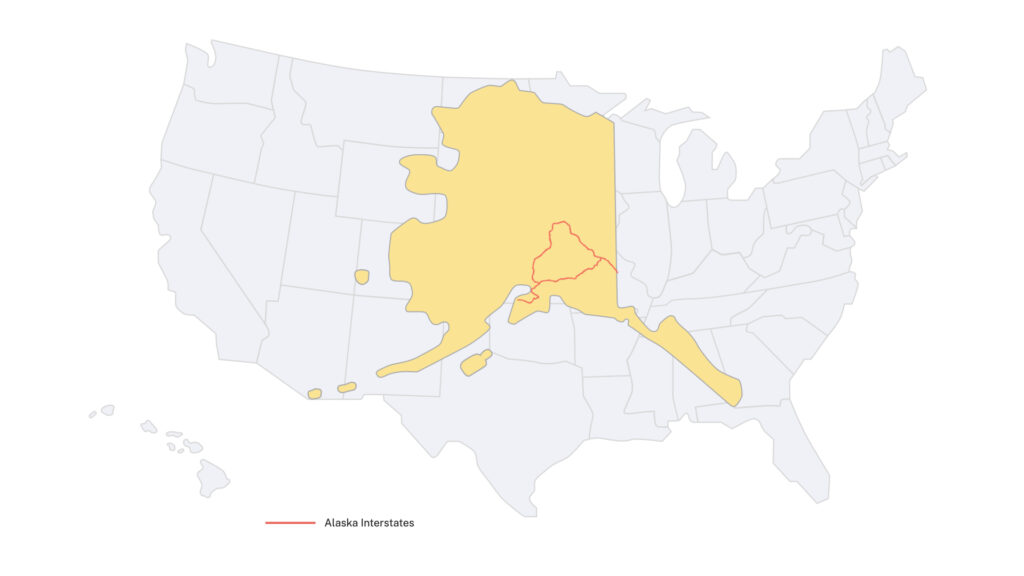
Even despite their difficulties, Tribes told us that they still see the value in grant reporting. As one Tribal grant administrator from Alaska affirmed, “[Grant reporting] adds value. We want to know where we spend our money… We want to know where it’s at, where it’s been, where it came from.” Overall, it was clear that Tribes want to successfully complete grant reports, and that they are marshaling what limited resources they have to meet requirements.
During the conference, we also tested three prototypes of offline reporting tools, developed by our partner Guidehouse, to understand how these tools might best meet the needs of recipients with limited internet access.
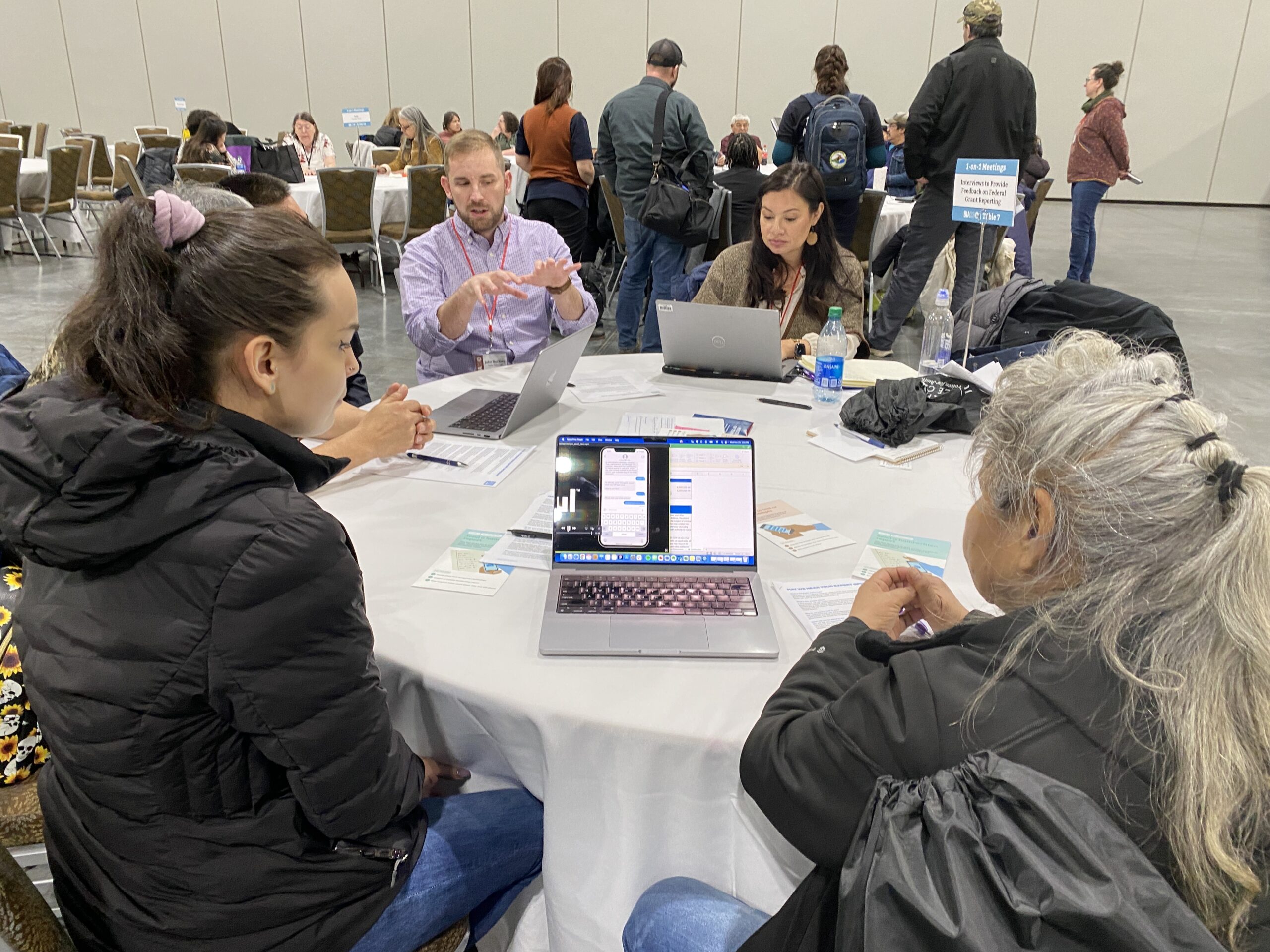
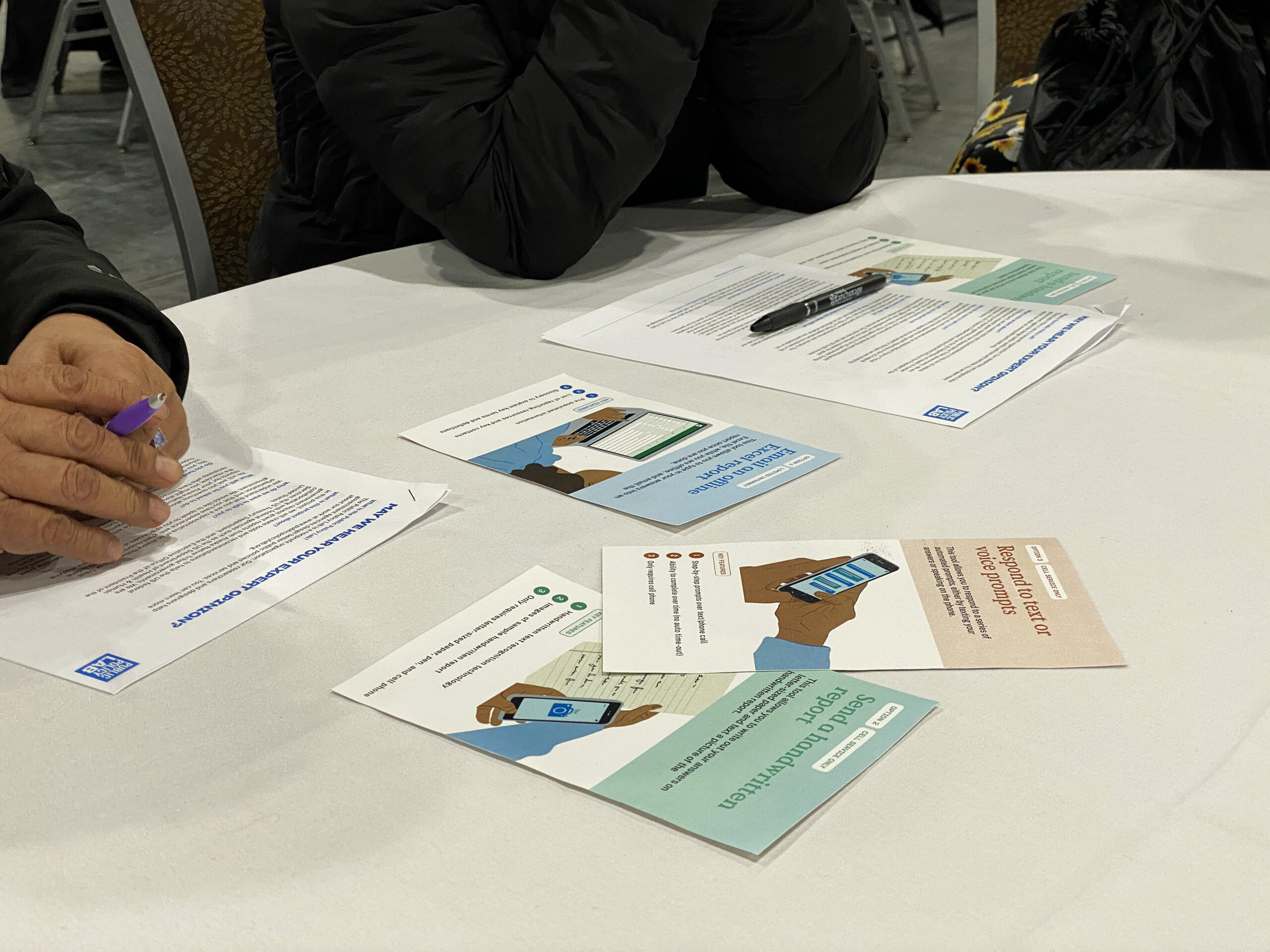
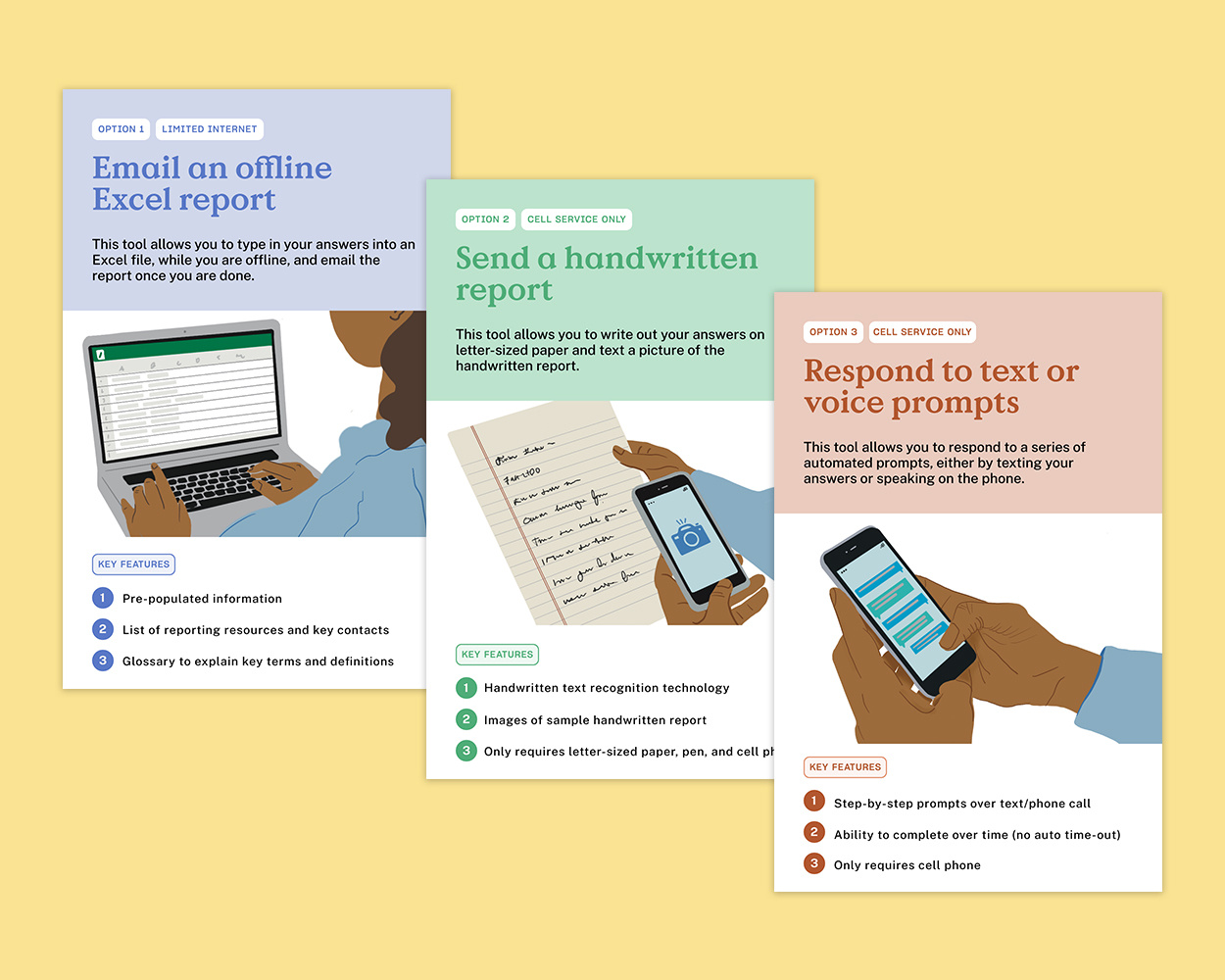
User-Testing
We conducted user-testing of three offline reporting tool prototypes with Tribal administrators.
Overall, our research pointed to five key needs of Tribes that must be addressed in tandem to transform post-award reporting outcomes.
Ultimately, we heard that Tribes need a grant reporting process that is designed for them. Rather than adopting a one-size-fits-all system, agencies should work closely with Tribes to integrate their needs, preferences, and ways of life. Rather than compelling Tribes to comply with requirements at all costs, agencies should seek to minimize the burden that these requirements impose on Tribes and free up Tribal resources to invest back in their communities.

Through collaborative synthesis sessions, we worked with our partners to brainstorm potential ideas for tools, services, and programs that could address the key needs of Tribes. Based on the synthesis sessions, we identified potential design concepts that aligned with these key needs. From there, pilot partners selected and designed four impactful pilot solutions for implementation.
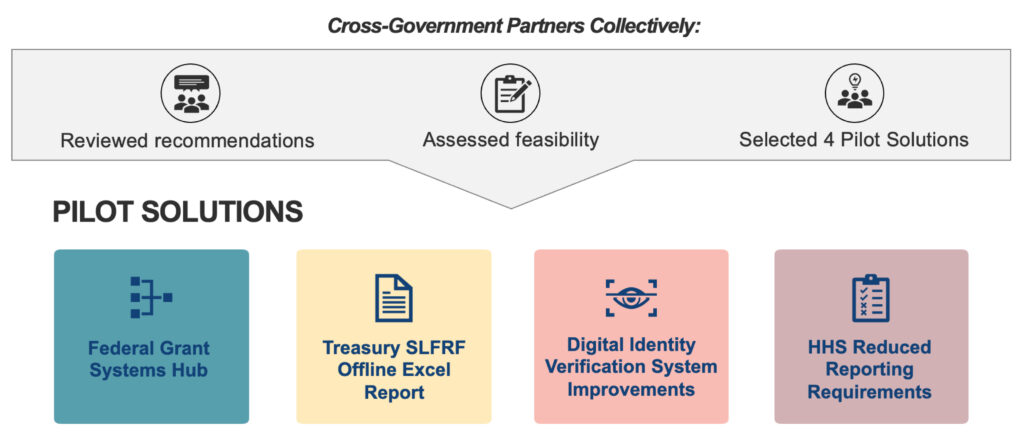
Pilot partners selected and designed four pilot solutions for implementation.
Based on the key needs and prototype recommendations, the working group and pilot partners went on to pilot four solutions:
Federal Grant Systems Hub: The pilot team built a searchable public dashboard that simplifies access to hard-to-find grant-related information by centralizing grant data and systems resources tailored to the recipient organization. Access the hub here.
Treasury SLFRF Offline Excel Report: The pilot team designed an offline Excel template that can be downloaded and used for State and Local Fiscal Recovery Funds (SLFRF) reporting.
Digital Identity Verification System Improvements: The pilot team engaged with government-operated and private sector identity verification providers to share direct user feedback from Tribal partners.
HHS Reduced Reporting Requirements: Indian Health Service (IHS) Behavioral Health Initiatives streamlined their inbound information portal by reducing the number of questions and developing improved data collection and reporting templates.
To learn more about the project and its results, read the joint press release from HHS, Treasury and Interior Departments here. The project’s final report, Tribal CX Pilot for Post-Award Reporting, includes an in-depth review of the project activities, key needs, and pilot solutions.
PPL is a tax-exempt 501(c)(3)
nonprofit organization.
info@publicpolicylab.org
+1 646 535 6535
20 Jay Street, Suite 203
Brooklyn, NY 11201